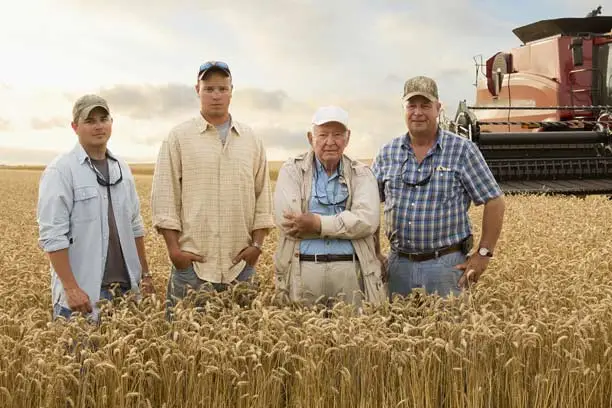Fair vs. Equal in Farm Succession Planning


Farm succession planning is a crucial process for farmers and ranchers looking to pass down their legacy to the next generation. Deciding how to split your farm or ranch can be challenging, especially when considering fairness and equality among heirs. Here are some tips to help you navigate this complex decision.
Creating a farm succession plan involves several important considerations to ensure a smooth transition and the continuation of farm operations. Here are some things to consider when it comes to family members and the succession planning process.
When determining who gets what, farm owners should consider their vision for the next generation of the business. It's essential to think about the future of the farm and how it will operate under new ownership. This includes evaluating the skills, interests and commitment of potential heirs to ensure the farming operation remains successful.
One of the most challenging aspects of farm succession planning is weighing the distribution of assets between children who work on the farm and those who do not. It's important to consider the contributions of each heir and how their involvement impacts the future generations of the farm. Balancing fairness and recognizing the efforts of participating heirs can help maintain family harmony.
Knowing the value of your land and farm is crucial before determining heirs. This can be done through appraisals or existing documentation. Understanding the worth of your assets allows for a more equitable distribution and helps avoid conflicts. Consulting farm succession professionals can provide valuable insights into the valuation process.
Operational assets such as machinery, grain setup, buildings and livestock are integral to the farm's success. It's important to assess their worth, leases and liabilities. Additionally, consider the financial preparedness of on-farm and off-farm heirs. Ensuring that heirs are equipped to manage these assets and liabilities is key to a smooth transition.
There are several strategies to consider when splitting a farm inheritance in your estate plan. Each method has its pros and cons, and the best approach depends on your family's unique situation. We offer help when it comes to succession planning for family farms and a unique approach farm estate planning.
Allocating farm business assets based on sweat equity is a common strategy. This involves recognizing the efforts and contributions of heirs who have worked on the farm. While this approach rewards hard work, it can also lead to feelings of inequality among non-participating heirs. It's important to communicate openly and ensure everyone understands the rationale behind this decision.
Assigning assets based on tenure and performance is another method. This strategy considers the time spent working on the farm and the production levels achieved by each heir. While it rewards dedication and results, it may create competition and tension among heirs. Clear guidelines and transparent communication are essential to mitigate potential conflicts.
Outlining purchasing agreements in your estate plan can solve scenarios where multiple heirs will co-own the inherited land. Examples of these agreements include:
This agreement gives heirs the option to purchase the land before it is offered to external buyers.
Heirs are given the first opportunity to buy the land at a predetermined price.
This agreement outlines the terms and conditions for buying and selling the land among heirs, ensuring a fair process.
Setting up non-operational assets, such as life insurance, for heirs who don't work on the farm can be a fair solution. This approach provides financial support without involving them in farm operations. While it ensures equality, it's important to consider the long-term impact on family dynamics and relationships.
Farm succession planning is a complex process that requires careful consideration and open communication. By balancing fairness and equality, you can create a plan that honors your legacy and supports the future success of your farm or ranch. For personalized advice and support, contact your local Farm Bureau agent to help you navigate your farm estate planning journey.